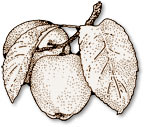
Art
Therapy and Alcohol Abuse
A
Personal Perspective
Alex contacted me
when he heard that I did art therapy with people who are dealing with
chemical dependency issues. He wanted to explore the underlying issues
around his drinking, which he'd been struggling with since his teens.
Now at age thirty five, he had begun to get steady work as an actor, and
supplemented his income teaching drama at a local community center. All
through the years of sporadic  work
and financial uncertainty, he was a heavy drinker but didn't consider
himself an alcoholic because he only drank wine, and felt he could stop
anytime he wanted to. However, just as his career was starting to fall
into place, his wife of five years asked for a separation because of his
increasing verbal abuse to her when he was drunk. While he was aware that
he used alcohol to cope with anxiety and to feel more social, he had not
been aware of the impact that it was having on his relationships and was
terrified of losing his marriage. Right around that time, the director
of a play he was in, commented on his drinking, and he became frightened
of destroying the career he had worked so hard to build. He quickly discovered
that he was not able to stop drinking on his own, and began to attend
A. A. meetings. His sponsor recommended therapy as a means of further
exploring the issues that were coming up.
work
and financial uncertainty, he was a heavy drinker but didn't consider
himself an alcoholic because he only drank wine, and felt he could stop
anytime he wanted to. However, just as his career was starting to fall
into place, his wife of five years asked for a separation because of his
increasing verbal abuse to her when he was drunk. While he was aware that
he used alcohol to cope with anxiety and to feel more social, he had not
been aware of the impact that it was having on his relationships and was
terrified of losing his marriage. Right around that time, the director
of a play he was in, commented on his drinking, and he became frightened
of destroying the career he had worked so hard to build. He quickly discovered
that he was not able to stop drinking on his own, and began to attend
A. A. meetings. His sponsor recommended therapy as a means of further
exploring the issues that were coming up.
Alex was intrigued
by the idea of art therapy, and was especially interested in exploring
why he had been feeling so depressed since the time he had stopped drinking,
four months earlier. We began a project that used chalk pastels on colored
paper, to begin to explore the unfamiliar and frightening emotions that
were underlying his depression. By letting the visual images that he created guide him, he found himself
continuously drawing a moonlit ocean with a lone sailboat on it. In making
associations to the picture, he said that it reminded him of how lost
and alone he had felt when his mother died of cancer when he was fifteen.
He realized for the first time that his alcohol dependence began in the
aftermath of her death, and that he had never really grieved, but spent
the rest of his teen years "essentially numb". He began a series
of water color impressions expressing the pain and loss that he kept from
himself, and that this new sobriety was bringing to the surface. As he
continued to use art therapy to explore a myriad of cut-off emotions,
his depression lifted, and he found that he was able to tolerate the full
gamut of human emotions without drinking. To his surprise, the more he
was able to risk painful feelings, the more he was able to experience
joy as well.
By letting the visual images that he created guide him, he found himself
continuously drawing a moonlit ocean with a lone sailboat on it. In making
associations to the picture, he said that it reminded him of how lost
and alone he had felt when his mother died of cancer when he was fifteen.
He realized for the first time that his alcohol dependence began in the
aftermath of her death, and that he had never really grieved, but spent
the rest of his teen years "essentially numb". He began a series
of water color impressions expressing the pain and loss that he kept from
himself, and that this new sobriety was bringing to the surface. As he
continued to use art therapy to explore a myriad of cut-off emotions,
his depression lifted, and he found that he was able to tolerate the full
gamut of human emotions without drinking. To his surprise, the more he
was able to risk painful feelings, the more he was able to experience
joy as well.
Previous art experience is not necessary.
Eating Disorders
| Bulimia Anorexia Obesity Men & Weight Issues |
Chemical Dependency
|
Alcohol
Abuse Drug Abuse |
Mood Disorders
| Depression |
Contact Information